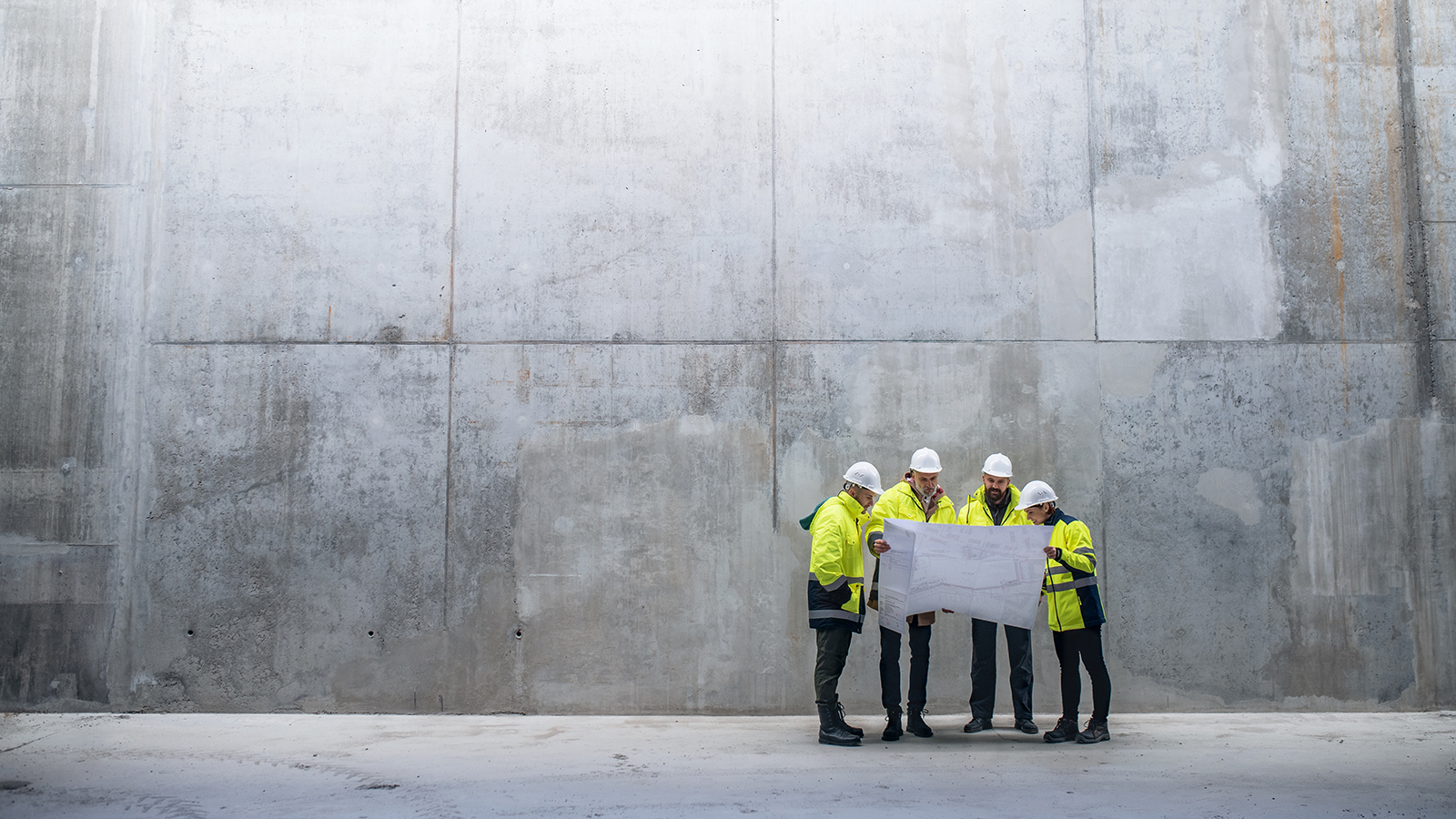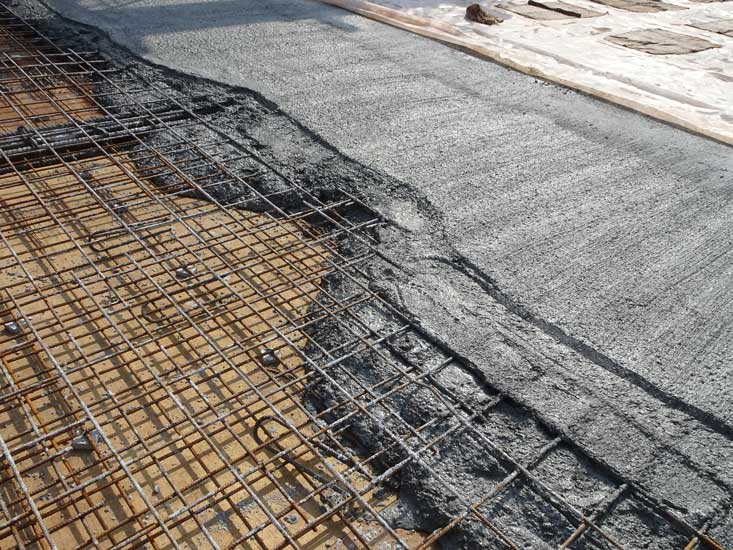Understanding the Numerous Applications of General Engineering Concrete in Diverse Industries
When you consider the numerous ways general engineering concrete effects numerous sectors, you'll find its applications are both wide and vital. From giving strong foundations for transportation networks to sustaining innovative energy remedies, this material plays an essential role in forming our facilities. What about its influence on urban development and environmental design? Exploring these facets can reveal far more than you may anticipate.
The Role of Concrete in Construction and Structure Projects
Concrete plays an essential function in building and structure tasks, composing around 70% of all materials used in modern-day structures. You'll find it in structures, wall surfaces, and floors, offering stamina and toughness. When you pick concrete, you're going with a material that can endure climate condition, withstand fire, and support heavy loads. Its convenience enables numerous applications, from property homes to imposing skyscrapers.Mixing concrete with additives can boost its homes, boosting workability and establishing times. You can additionally mold and mildew it right into different forms, enabling creativity in design. As you deal with your tasks, consider the ecological benefits of utilizing concrete, such as its ability to reduce power intake in buildings. On the whole, concrete's reliability and adaptability make it a cornerstone of the building market, guaranteeing that frameworks are not only functional but also risk-free and lasting.
Infrastructure Development: Roads, Bridges, and Passages
When it involves framework development, roads, bridges, and tunnels are vital components that link neighborhoods and facilitate transport. You depend on these structures daily, whether you're travelling to work or traveling cross countries. General design concrete plays a necessary duty in their building and construction and toughness. Its toughness and flexibility permit engineers to make robust streets that hold up against rush hour and harsh weather conditions.Bridges, typically covering rivers and valleys, call for particularly created concrete to assure safety and durability. Using reinforced concrete in tunnel building and construction not just sustains considerable weight but additionally boosts resistance versus water infiltration and ground movement.

Concrete in Transport: Enhancing Flexibility and Safety
As you navigate with bustling cities and country roadways, the role of concrete in transportation ends up being apparent, greatly boosting both flexibility and safety and security. Concrete's durability guarantees that roadways, paths, and bridges withstand rush hour and harsh climate condition. This durability reduces the requirement for constant repair work, maintaining your trips smooth and reliable.In addition, the layout versatility of concrete permits innovative structures like overpasses and passages, which effectively lower congestion and improve traffic circulation. You'll discover that concrete surface areas also supply far better grip, decreasing the probability of crashes in wet conditions.Moreover, using concrete in trains aids preserve stability and security for trains, making your journeys more reliable. On the whole, concrete's payments to transport not just enhance your movement yet also substantially reinforce public safety and security, reflecting its essential role in the framework you depend upon everyday.

Power Industry Applications: From Nuclear Power Plant to Renewable Power
In the power field, concrete plays a substantial duty in the construction and operation of power plants and renewable resource setups. You'll find it essential best site for developing sturdy structures, sustains, and control frameworks that stand up to severe conditions. In thermal nuclear power plant, strengthened concrete frameworks guarantee safety and security and durability against heats and pressure. WCGE commercial concrete.When it involves renewable resource, concrete is vital for wind turbine bases, solar panel places, and hydroelectric dams. It gives the stability required to harness energy successfully. You might not understand it, yet the concrete utilized in these applications is specifically formulated to meet certain efficiency standards, like longevity and resistance to environmental variables
Innovative Concrete Solutions in Environmental Design

The Effect of Concrete on Urban Advancement and Landscaping
Concrete plays a necessary function in shaping metropolitan development and landscape design, influencing whatever from infrastructure toughness to visual charm. When you think about cityscapes, concrete structures like bridges, roads, and structures come to mind, offering a tough foundation for city life. You'll observe how well-designed concrete pathways and plazas improve public spaces, making them more welcoming and functional.In landscape design, concrete offers versatility, enabling imaginative styles for patio areas, keeping wall surfaces, and decorative attributes. You can produce one-of-a-kind outside areas that mix perfectly with nature while maintaining structural integrity. In addition, concrete's ability to go right here hold up against weather condition extremes warranties longevity, lowering the demand for frequent repairs.
Future Fads and Innovations as a whole Engineering Concrete
As metropolitan landscapes advance, the need for innovative concrete options is driving developments in basic engineering. You'll notice fads leaning in the direction of eco-friendly products and lasting techniques. Scientists are concentrating on establishing high-performance concrete that reduces environmental impact without sacrificing strength.Next-gen additives and blends, like recycled aggregates and bio-based products, are gaining traction, enhancing sturdiness and reducing carbon impacts. Smart concrete technology is additionally emerging, integrating sensing units that check architectural health and wellness in real-time, enabling aggressive maintenance.You could discover that 3D printing with concrete is coming to be extra sensible, allowing complicated designs and faster building and construction timelines. Furthermore, the assimilation of self-healing concrete gets on the rise, guaranteeing durability and decreasing repair service prices.
Often Asked Inquiries
What Are the Ecological Impacts of Concrete Production?
Concrete production creates considerable carbon exhausts, takes in water, and diminishes natural deposits. You can mitigate these influences by exploring lasting choices, enhancing mix designs, and incorporating recycled materials to lower your environmental impact and boost sustainability.
Just How Does Concrete Compare to Various Other Building Materials?
Concrete's sturdiness and stamina often outperform materials like wood and steel. It's functional, affordable, and energy-efficient, but its ecological effect can be substantial. You'll wish to weigh these factors when selecting building materials.
What Are the Various Sorts Of Concrete Available?
There're numerous kinds of concrete offered, consisting of criterion, reinforced, high-strength, light-weight, and attractive. Each type offers certain objectives, so you can choose the one that best fits your task's requirements and requirements.
Exactly How Is Concrete Recycled and Recycled in Building?
You can reuse concrete by squashing it into aggregate, which you after that reuse in brand-new building stamped concrete that looks like pavers and construction jobs (West Coast General Engineering industrial concrete). This process lowers waste, lowers costs, and reduces the ecological influence of sourcing brand-new products for your builds
What Security Measures Are Required When Dealing With Concrete?
When collaborating with concrete, you should wear protective gear, like gloves and safety glasses, warranty proper air flow, and utilize safe lifting strategies. Constantly follow safety and security standards to stop injuries and maintain a safe and secure workplace.